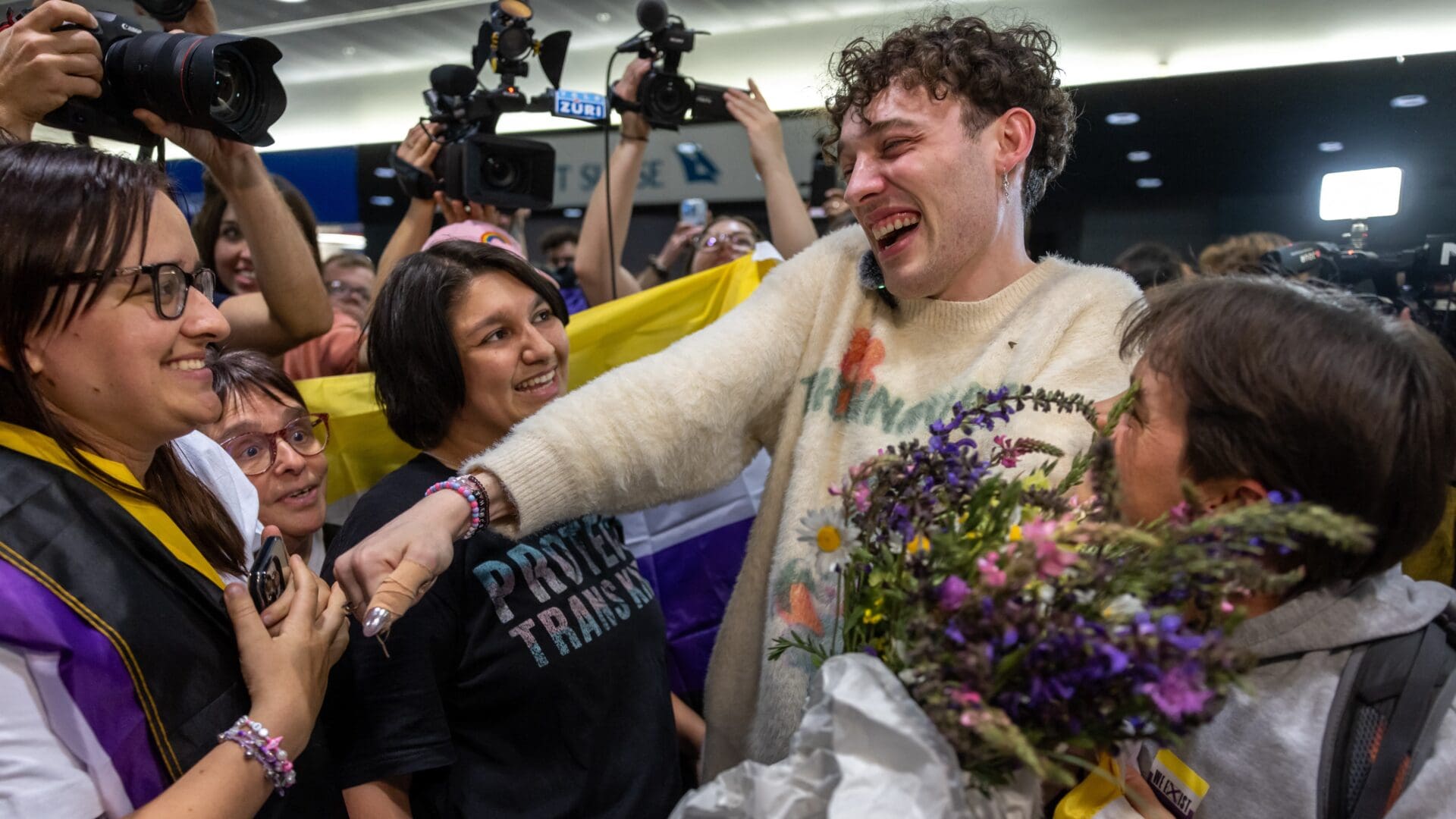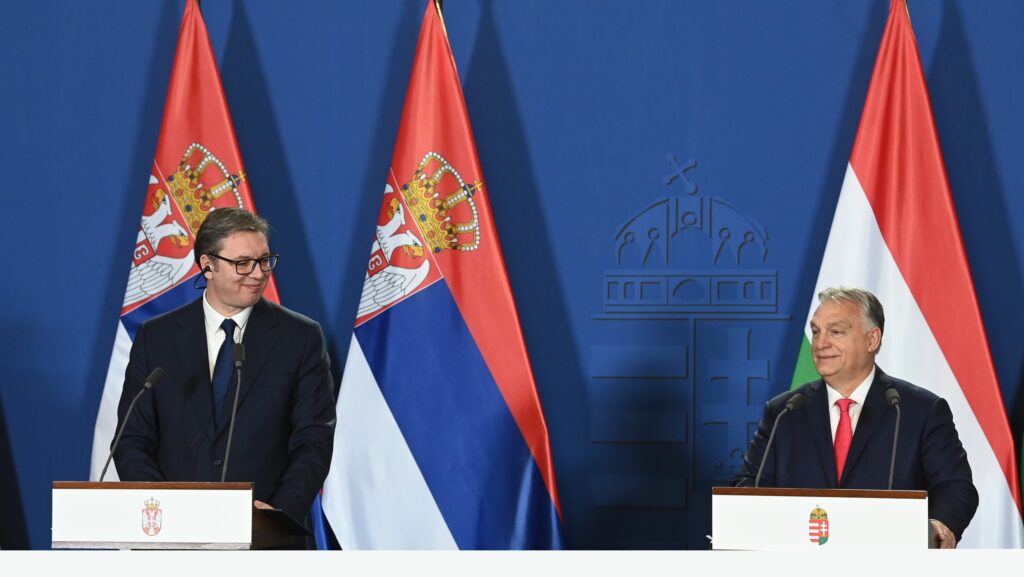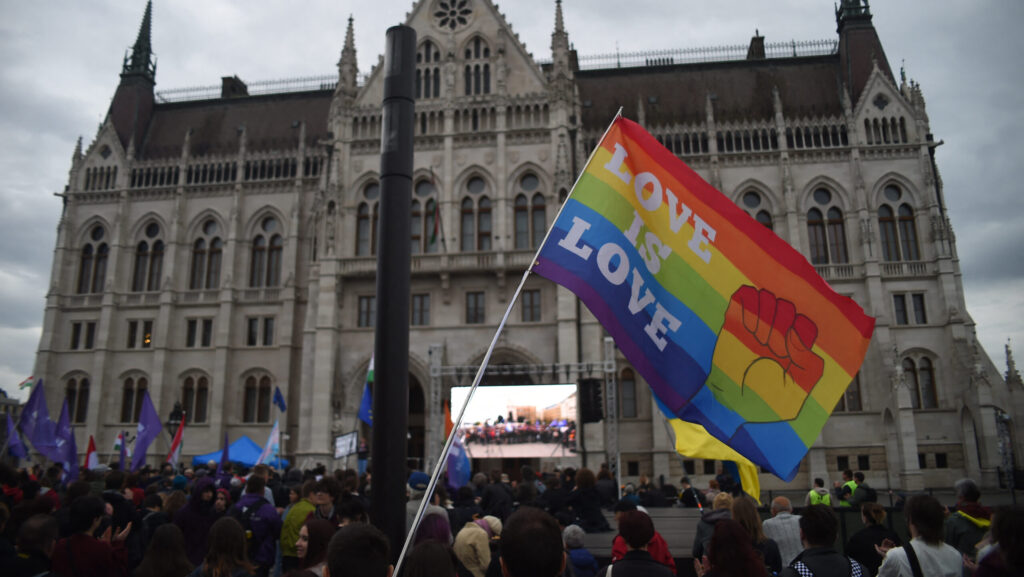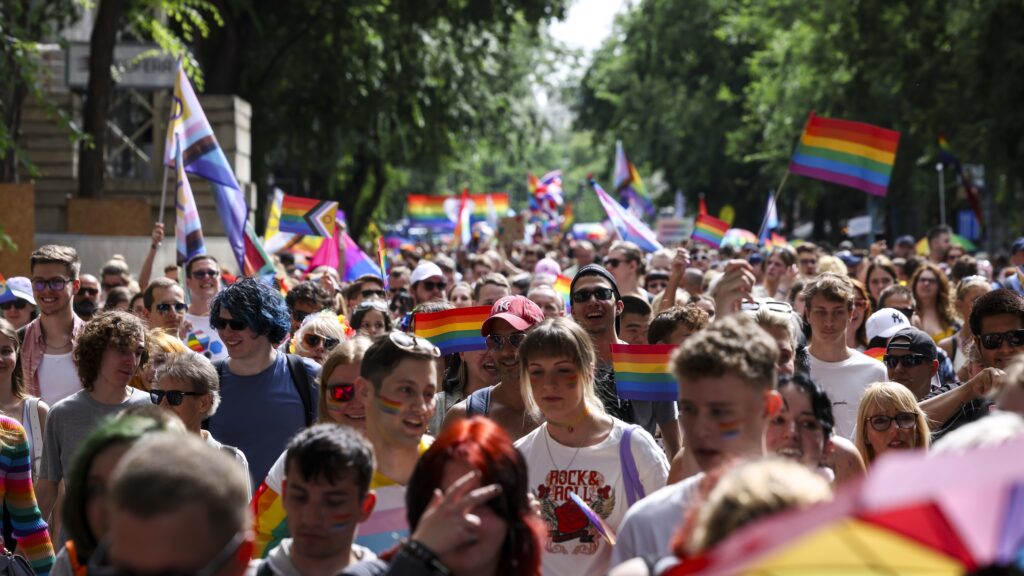In the early hours of Sunday morning, Switzerland’s non-binary Nemo clinched the top spot at the 68th Eurovision Song Contest. Now, as the glitter settles and the confetti fades, it’s time to reflect on a competition that was once a celebration of European unity.
In recent times, the contest has evolved into a spectacle that teeters on the edge of absurdity and reflects the strange ideologies that dominate our modern society. What was once a stage for showcasing musical talent has transformed into a platform where the bizarre reigns supreme, where men can identify as women, and vice versa, in a circus-like freak show.
In many ways, the Eurovision ‘song’ contest is a reflection of where we are as a society.
What was once a competition focused on the quality of the songs and performances has shifted towards a focus on spectacle, shock value, and the bizarre.
In this new Eurovision era, it appears that the zanier and more offbeat the performance, the higher the acclaim. But who exactly benefits from these antics remains as mysterious as the performers’ taste in costumes.
Artists and performers are no longer judged solely on their musical talent, but on their ability to shock and awe the audience with their eccentric costumes, outrageous dance moves, and unconventional stage presence. It is no longer about the music or substance; it is about the spectacle. And what a spectacle it has become.
One of the most notable aspects of this transformation is the way in which Eurovision has embraced and even celebrated the blurring of traditional gender roles and identities. In recent years, we have seen a growing number of performers who do not conform to traditional notions of gender and who openly identify as non-binary, genderqueer, or transgender.
Once a bastion of family-friendly entertainment and wholesome values, the Eurovision is now home to performers in skin-tight bodysuits that leave absolutely nothing to the imagination. Even more strange is the fact that it’s not the ladies stealing the show with their barely-there ensembles, oh no, it’s the gentlemen who are bravely baring it all for the world to see.
In a delightful twist of gender norms, it appears that the men of Eurovision have taken it upon themselves to push the boundaries of fashion and good taste to new heights (or depths, depending on your perspective). Gone are the days of demure gowns and tasteful suits—now it’s all about showcasing every curve and contour in skin-tight glory, with a healthy dose of sequins and sparkle for good measure.
One can’t help but marvel at the sheer audacity of these brave male performers, strutting their stuff in outfits that would make even the most seasoned fashion critic blush. Who needs subtlety when you can have a skin-tight bodysuit that leaves absolutely nothing to the imagination? These men have embraced the sartorial revolution with open arms (and very little fabric).
In 2017, for example, a man by the name of Slavko Kalezić descended upon the Eurovision stage like a glittering comet, leaving a trail of sartorial chaos and bewildered onlookers in his wake.
Hailing from Montenegro, Slavko graced the stage in an outfit that defied all laws of fashion and reason, much to the delight (or horror) of the unsuspecting audience. Dressed in a sheer black long-sleeved top paired with a deep-blue skirt, his vocal ability left much to be desired. However, it quickly became apparent that his stage presence transcended mere vocal mediocrity. As the song reached its crescendo, the audience bore witness to a fashion spectacle of epic proportions, a metamorphosis so grand that even the gods of style themselves would be left scratching their heads in confusion.
As the music swelled and the crowd held its breath, Slavko shed his outer layers with the grace of a gender-bending peacock, revealing a pair of skin-tight, emerald-green sparkly pants that shimmered like a disco ball on steroids.
It is clear that the Eurovision has become a battleground for the debate over gender identity and the boundaries of acceptability in the public sphere.
Today, it seems, nothing is off-limits, and performers are encouraged to push the boundaries of what is considered socially acceptable. This anything-goes mentality has led to a competition where the weird and the wacky reign supreme, and where acts that would have been unthinkable in the past are now celebrated and applauded.
From performers playing the role of giant hamsters to singers who perform entirely in made-up languages, Eurovision has become a stage for the bizarre and the outlandish. It is a mirror held up to society, reflecting back to us our own strange obsessions and preoccupations.
In a world where reality TV shows dominate the airwaves and social media influencers hold sway over millions of followers, the Eurovision has carved out a niche for itself as a launching pad for the certifiably insane.
Not surprisingly, as the Eurovision has veered further and further into the realm of the bizarre, it has also come under increasing scrutiny and criticism. Many see the competition as a laughingstock, a relic of a bygone era when music and talent were the primary focus. They lament the loss of what made the Eurovision special in the first place and decry its transformation into a freakish sideshow.
Although the Eurovision continues to draw millions of viewers each year and remains one of the most-watched television events in Europe, its appeal lies not in the quality of the music or the performances, but in the sheer spectacle of it all, in the larger-than-life personalities and the over-the-top theatrics that have come to define the competition.
In the end, the competition is a reflection of our modern society, with all its quirks, contradictions, and complexities. It is a place where oddballs, lost souls, and narcissists come together in a celebration of glitz, glamour, and lots of glitter.








